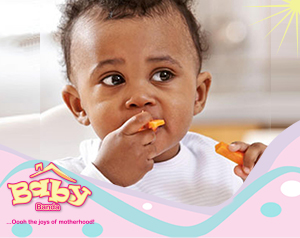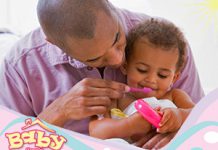Your baby’s health is your greatest concern right now. Apart from sterilizing the utensils and every surface you place the baby on, you must familiarize yourself with baby food safety guidelines.
The little one’s immunity system is developing so unhygienic practices in the kitchen will easily lead to food poisoning. Here are a few tips to ensure that doesn’t happen.
- Anyone tasked with the responsibility of handling the baby’s food must wash their hands thoroughly with soap and water at all times. That is, after visiting the washroom, before and after changing diapers, and before cooking and feeding the baby. Do not compromise on these rules since even the tiniest infection could lead to severe diarrhea.
- Once your baby starts crawling, ensure you keep washing their hands. Remember at this stage they put everything in their mouths. So, on top of disinfecting the floors everyday, the tiny hands should be clean at all times. Sometimes when the child knows where fruits and snacks are, he will keep going to serve himself. Hence, clean all fruits immediately you get home. Since you cannot clean the snacks, remove them from the packaging and store in clean airtight containers.
- All kitchen surfaces must be cleaned and disinfected before and after cooking. Also, it’s advisable that after washing utensils, you place them where there’s free flow of fresh air and let them dry naturally. Avoid the habit of drying them with a cloth then locking them up in the cabinet.
- Try and always cook fresh food for your baby. At times you might be tempted to cook lots of food and store in the fridge. Then you keep reheating small portions. Kindly know that your baby’s stomach is sensitive. You can do that with adults but it is not encouraged for the young one. It’s easy to get fresh and organic foodstuffs in Kenya. Allow your child to enjoy new food all the time. Plus, the more you reheat food the more you ruin its nutrients.
- For formular-fed babies, follow the instructions on the container to the letter. Also, it’s good to consult your doctor on the safest formular in the Kenyan market today.
- Due to the hot weather in Kenya it’s easy for your food to go bad. Hence, feed your baby once the meal is ready. Also, if you doubt the freshness of fruits and snacks keep them away from the child.
- Sometimes circumstances will force you to refrigerate your food. In such cases, ensure that the food is not fried and the fridge is on at all times. The fridge should also be clean and uncrowded.
- Throw away half-eaten food.
- Keep raw meat and fish far from cooked food.
- Don’t feed your child while they’re using the potty.
- Pack food in air tight containers when travelling with the baby
Conclusion
The above safe hygiene practices will save you numerous visits to the hospital. Make sure that everyone in the house understands why they must handle baby’s food differently from any other.













